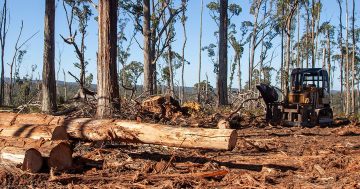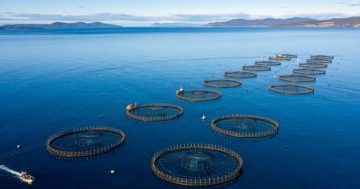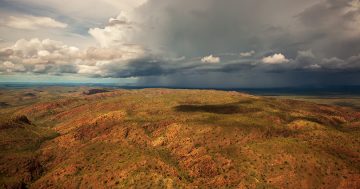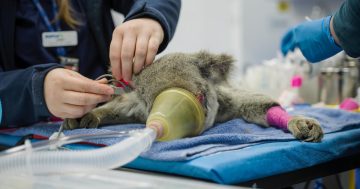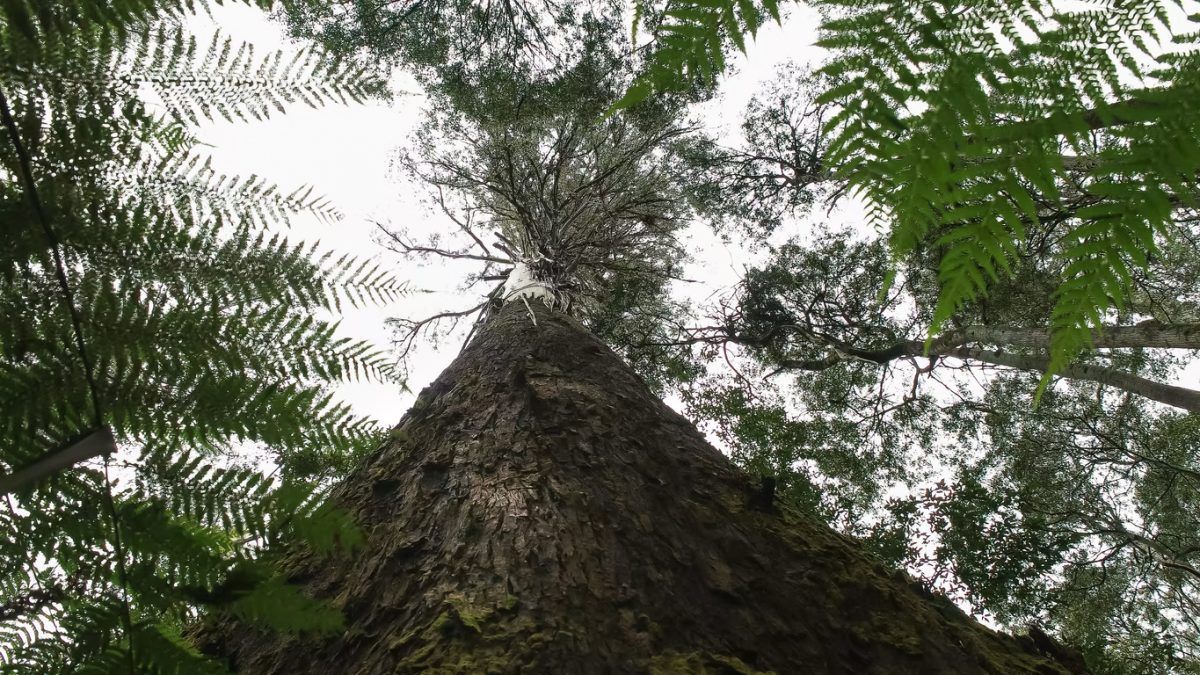
In early November, Wood Central revealed Tasmania would face a ‘wood famine’ if it didn’t boost sawn wood production by more than 650,000 cubic metres over the next 15 years. Photo: File.
With the impending shutdown of Victoria and WA’s native hardwood industries, the Tasmanian government has announced the release of 350,000 cubic metres of hardwood plantation logs per year. Sustainable Timber Tasmania (STT) will lead the effort, which Resources Minister Felix Ellis said will drive up wood production, exports, investment and jobs.
The project has been decades in the making and will include 125,000 cubic metres per annum of pruned and unpruned millable logs with a more than 30 cm small end diameter. To support the transition of local businesses from native hardwood to plantation timber, the state government has dedicated over $200 million in funding.
Despite the payouts, local businesses have accused some companies of using predatory pricing measures to undercut their profits by importing hardwood logs. There are also concerns the recent announcement will ignite a forest war between the logging industry and environmental groups over forest coups, which are small areas set to be harvested in a single operation.
In early November, Wood Central revealed the state would face a ‘wood famine’ if it didn’t boost sawn wood production by more than 650,000 cubic metres over the next 15 years.
Minister Ellis said a key focus of STT will be growing on-island processing and adding to the value of Tasmanian timber.
“This will mean increased opportunity for regional investment and regional jobs in forestry across the State,” he said.
“STT will undertake a three-stage allocation process for plantation logs and will commence Stage 1 of the process, which will allow interested parties to qualify for participation in Stage 2. The qualification period will remain open until the end of January 2024.
“STT have worked diligently to ensure that the allocation process for plantation logs provides a level playing field and complies with relevant Federal laws relating to competition.”
According to the Minister, STT’s current customers will also be given a fast track to qualification, long-term access to native forest sawlog, and a 30 per cent weighting for contribution to the Tasmanian economy, which is a 5 per cent markup on the ‘Buy Local’ policy set for government departments.
On 13 November, the Bob Brown Foundation welcomed Federal MP Sophie Scamps’s pledge to end native forest logging. Foundation campaigner Scott Jordan said the use of 100 per cent plantation wood must include more effective domestic processing of Australia’s existing plantation estate for both domestic and international markets.
“There are significant issues with historic plantation management and practices that must be avoided. Poorly located and mismanaged plantations have led to weed proliferation, soil erosion, damaging impacts on water tables, and increased fire risks affecting communities and ecosystems,” he said.
“The loss of productive farmland associated with the ill-fated and ill-conceived managed investment schemes are fresh in the minds of many and highlight the risks in plantation expansion incentives.
“Australia’s plantation estate needs reconfiguring rather than expanding, ending reliance on mass low-value woodchip exports, often to be burnt in high-carbon emitting electricity furnaces. Investment in higher value processing of plantation products, replacing imported timber products, presents the best path forward for the plantation sector.”
In an effort to address this, the state government’s On-Island Processing Program will contribute up to $10 million over the next five years to projects that add value to the current timber harvest, better utilise wood waste, help insulate the industry from international commodity markets, reduce the need for imported wood products and support the local construction industry.


